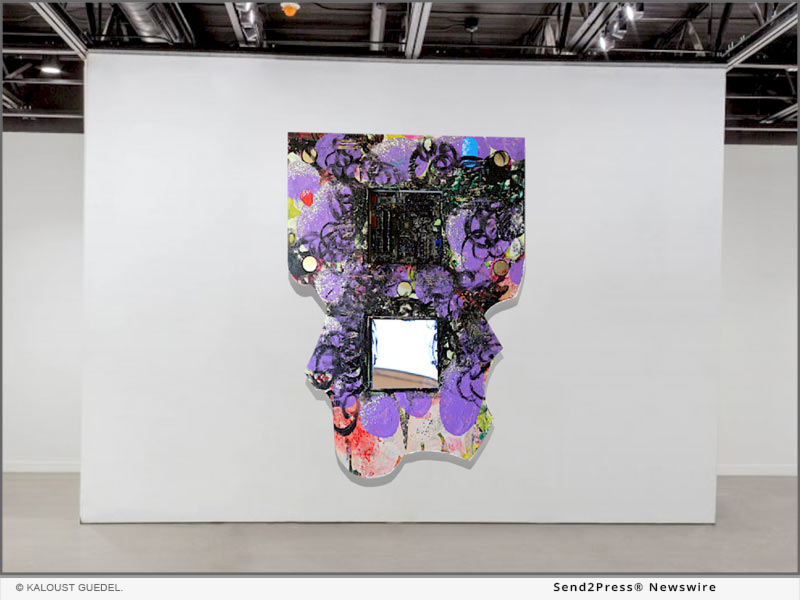This Ancient Technique Dates Back to 2500 BC, and Has Inspired a New Direction in Contemporary Painting – A Point at Which History Converges with The Present
LOS ANGELES, Calif. /California Newswire/ — Over the past four decades, Kaloust Guedel has worked in diverse styles and techniques, constantly searching for the “perfect” resonance, ever aware that his search is an endless one. His next experiment was to combine a painting he had painted with a sculpture he didn’t particularly like.

“I thought something was missing with it, but couldn’t put my finger on it,” he said. To see what would happen, he cut out the shape of the figure in hand and placed it inside the cut area, unaware that he had stumbled upon an old inlay technique.
Guedel’s rediscovery of inlay through art is a pioneering achievement in contemporary painting. Guedel calls the inlay work “an investigation of immersion in painting.”
The use of inlay is very widespread in decorative art. The earliest example of the inlay dates back to 2500 B.C., and it comes from Mesopotamia’s Sumer civilization. There are also examples from China dating back to 400 B.C. Sculptures of inlay work are found in various periods. It was later popularized in Europe by Andre-Charles Boulle (1642-1732).
Guedel’s prior work was based on the idea of excessivism. He was instrumental in bringing the movement to the masses. He curated the inaugural exhibition at a Los Angeles art gallery. As the movement’s popularity grew around the world, other artists, fashion designers, and musicians joined in, transforming it into a global art movement in line with globalization. Even Gallero magazine went so far as to call it, “… truly a millennial movement in all senses of the word.”
Guedel talks about his work with the utmost passion. “What interests me is the relationship between the elements that I find captivating for my curiosity at the moment of creation. I see my work as a body of records of ideas, thoughts, and feelings. The timeline can be traced by going back to my earlier works and determining my feelings and thoughts at the time of their creation,” he said.
He adds, “To me, art is a form of communication in which you express yourself about something; you do so from the depths of your spiritual being; a place where consciousness cannot fully penetrate. I suppose that is what makes art so mysterious and so individualistic.”
Learn more at: http://www.zdom.com/
Learn More: http://www.zdom.com/
This version of news story was published on and is Copr. © 2022 California Newswire® (CaliforniaNewswire.com) – part of the Neotrope® News Network, USA – all rights reserved.
Information is believed accurate but is not guaranteed. For questions about the above news, contact the company/org/person noted in the text and NOT this website.














